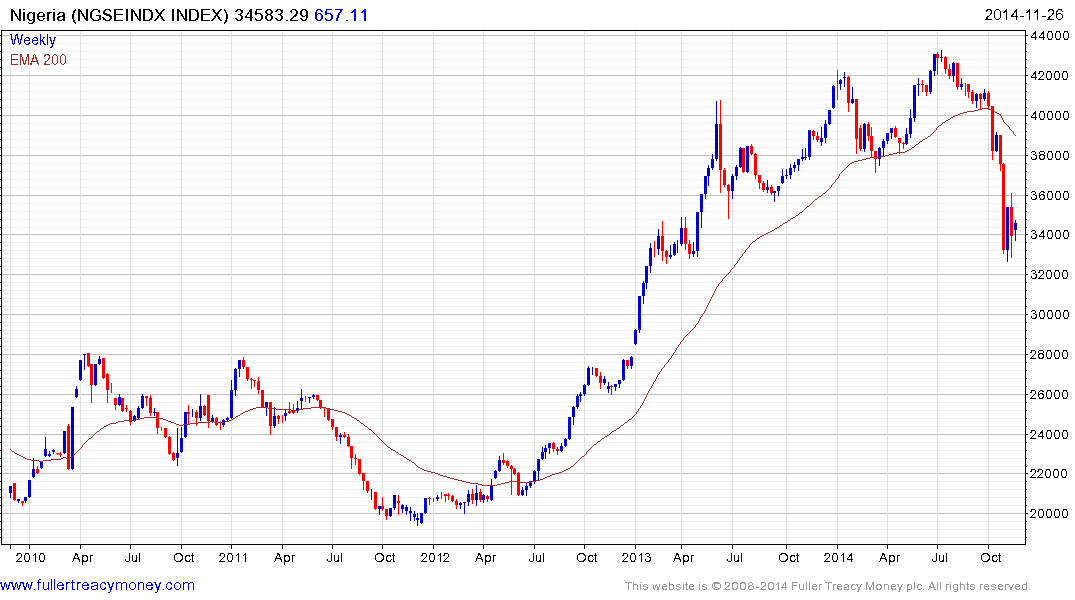No Relief for Nigeria Naira as Oil Drop Breaks Bank Defenses
This article by Paul Wallace and Emele Onu for Bloomberg may be of interest to subscribers. Here is a section:
“The pressure on the naira will continue,” said Blackwood, who advises Sydbank A/S, a Danish bank, on $3.3 billion of fixed income assets in developing countries. Sydbank sold its naira bonds in October and early November because lower oil prices were weakening the currency, said Blackwood. “The best thing to do would be to depreciate more than they’ve done.
You have to start looking at levels of 190 or 200 in the interbank market before it makes sense.” Nigeria’s foreign reserves dropped to a five-month low of $37 billion on Nov. 24, down 15 percent this year, after the central bank tried to bolster the naira. Yesterday’s tightening won’t stop policy makers from having to intervene in the foreign-exchange market, said Pabina Yinkere, head of research at Lagos-based Vetiva Capital Management Ltd.
The removal in February of Nigeria’s outspoken central bank head, Lamido Sanusi, in advance of his expected term ending in June was a setback for governance in a country where public accounting standards leave much to be desired. As a result of this change, the recent weakness of oil prices is one of the first major challenges for the new central bank governor and more will likely be required to stabilse the naira.
.png)
The currency’s devaluation over the last couple of weeks has been the steepest decline since 2008 and has taken its toll on the stock market. The Index has at least paused over the last couple of weeks but a sustained move above 38000 will be required to question Type-2 top formation completion as taught at The Chart Seminar.

High commodity prices paper over a lot of cracks in the public finances of developing nations. As commodity prices decline, Improving standards of governance are more important than ever if the development potential of African countries is to be achieved. In the meantime Nigeria is not the only country to have experienced currency weakness. As some of the froth is blown off of African markets, some interesting buying opportunities are likely to emerge in related instruments.


